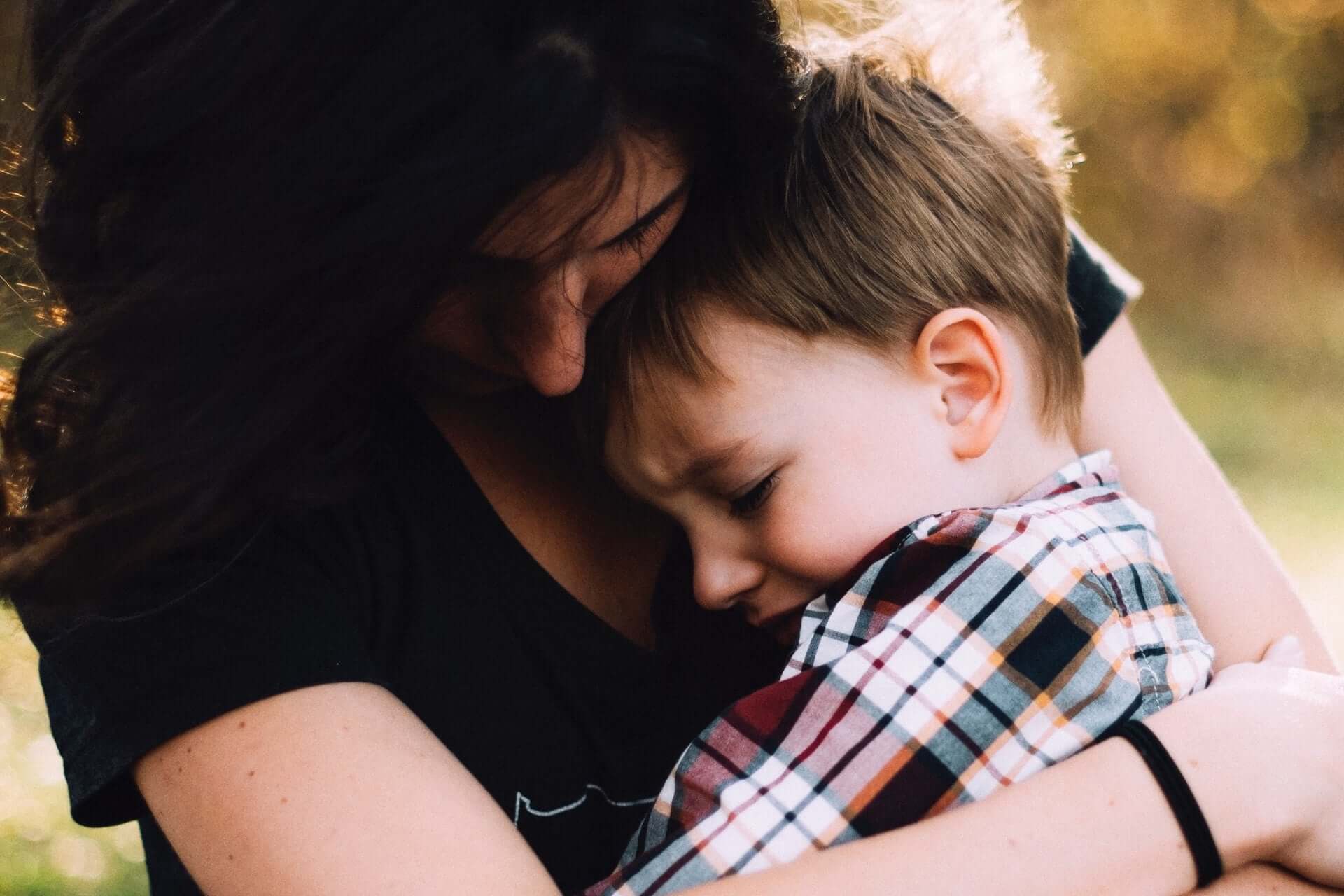
Inhaltsverzeichnis
"Love me the most when I deserve it the least, because then I need it most."
Quote by Helen Keller.
"My daughter (8) is freaking out."
Another day where I wonder what I did wrong. More than that, I'm sure I've done everything wrong. She acts like her family is the worst in the world. She beats her brother until he cries, manipulates me to no end, looks at me with unashamed cheek, and says things like, "I don't want you to have peace."
My daughter often seems to act according to an inner motto that tells her to punish everything around her when she doesn't feel good. She knows exactly which buttons to push to make things hurt, how to win an argument, and how to make me feel insecure.
Too often, I don't react in time and take what my daughter says personally. Or I'm already so exhausted and distracted from the day, with so much swirling around in my head, that one of her mean remarks hits me like a dig. Even though I know she's a child. Even though I know it has nothing to do with me at the core.
On the other hand, it all has to do with me. Whatever my daughter shows me is a reflection of what's inside me. If I don't create a loving atmosphere, I experience it directly in my child's behavior. She defends herself against what isn't good for her, loudly and vehemently. Indeed, as a mother, this is the level at which I should take her behavior personally.
Children's rebellious behavior always reflects a need at its core. When they act loudly and provocatively, we can ask ourselves: What does the child need right now? What's this really about? It's like with us adults: It's never about the obvious object of anger.
We are all children inside
The core of the conflict isn't that the child doesn't want to eat the broccoli. There's so much more behind the refusal.
I remember driving my parents crazy by deliberately breaking all the rules. When there was an argument with my mother and all she asked for was a few minutes of peace, I would interrupt her every minute to get my way.
Only years later did I realize that this process was, at its core, about something much deeper. I wanted to repair the relationship that had been damaged by the argument. Of course, it was important to me to get what I wanted. But at the core, I longed for my mother to see me. I mean, to see me properly. To realize who I am by taking my wish seriously and perceiving me in that way. I wanted to be recognized—and loved—for who I am.
I also realize that even today, as an adult, I repeatedly find myself falling back into old patterns from my childhood. For a long time, I unconsciously behaved in unacceptable ways in close relationships. It only dawned on me in retrospect – something inside me, the child who wasn't sure if I was lovable, wanted to test whether the love of my partner was truly unconditional. Am I accepted, regardless of my behavior? Do my parents only love me if I'm always well-behaved and well-adjusted? How far can I go before the patience of others – on whose favor I was largely dependent as a child – runs out?
There may be an unconscious belief behind it, for example: I'm not completely lovable. At some point, they'll see who I really am, and then they'll turn away from me.You'll see!
What helps?
And the actual or inner child behaves exactly according to this model and thus provokes the external behavior that it secretly expects.
This is just one possibility of what could be going on inside the little person in such a delicate situation – but it is a common scenario.
What can be done to remedy this?
If we look deeply into this, we know: Love alone, which unconditionally demonstrates, time and again, that I am a safe and trustworthy parent, can dissolve such beliefs. As young people grow older, they will increasingly take on more responsibility for themselves and learn that their worth does not depend on the opinions of others – but during childhood, it is up to us to sow this valuable seed to give our children a good start into the future.
By the way, it's perfectly normal for little ones to test us. They want to sense us, sense themselves, and discover their world – cause and effect are truly fascinating phenomena! A friend's daughter once said to her when she didn't get something she wanted: "You are the most unloving mother I know. You're not interested in us at all, and you don't care about us at all!" This mother works at home full-time and cares for her children exclusively by choice.
Something was certainly happening inside this child on multiple levels, but perhaps it was simply a: Hey, you annoy me, I annoy you. I want to experience what it's like to be capable of taking action.
And you?
We should know: It's not our job to be our children's best friends. Being a buddy isn't one of the things that conveys to our children that they can rely on us and that they are loved.
It's our job to be a safe place for them. We provide this through a clear framework, unconditional love, clear rules and boundaries, but also through our undivided presence, our listening, and our taking their deeper needs seriously.
Knowing this can be a huge relief. You don't have to do everything to please your child. That's not what they need. It's also about your well-being in the relationship.
So, if your child freaks out again, remind yourself that it's an opportunity to love them more and more deeply. Even if you don't have to tolerate their disrespect, the deeper message has been received. And maybe you'll hug each other one more time.
If you would like to learn more about healthy eating, mindfulness or sustainability, Check out more exciting blog articles on these topics here.



























Leave a comment
This site is protected by hCaptcha and the hCaptcha Privacy Policy and Terms of Service apply.